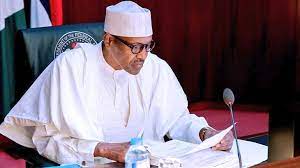The Nigerian government intends to increase its outstanding public debt to 50.22 billion naira ($ 122 million) by 2023, with domestic debt of 28.75 billion naira ($ 69.9 million) and debt of 21.47 billion naira ($ 52.2 million).
The projections contained in the National Development Plan 2021-2025, indicate that the state plans to accumulate approximately 12 billion naira of debt between 2021 and 2023, as well as a reduction of the total public debt by 2025.
Nigeria’s public debt was estimated at 38 billion naira at the end of the third quarter of 2021, with the total outstanding debt increasing by 2.540 billion naira in three months from July to September 2021, according to the Management Bureau of the debt.
Similarly, the government is targeting an outstanding debt of 39.59 billion naira for 2021, 46.63 billion naira for 2022, 50.22 billion naira for 2023, 50.53 billion naira for 2024 and 45 , 96 billion naira by 2025.
“The plan’s borrowing framework is 45% each for foreign and domestic borrowing, while other sources of finance represent 10%. Domestic bonds and concessional external debt financing, among others, will reflect the borrowing strategies of the plan. Thus, the government will improve current debt management strategies to ensure sustainability, ”the document said.
However, this plan edited by President Muhammadu Buhari’s team does not meet with the support of certain economists who deem Nigeria’s level of indebtedness rather worrying and urge the government not to consider further borrowing. For these specialists, the pace of government borrowing was not sustainable because the revenues generated would be used to service the debt.



